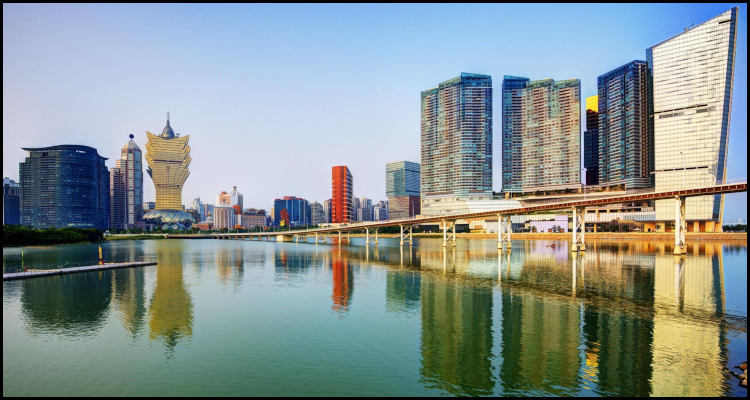The over 40 casinos in Macau reportedly contributed just over $319.63 million in aggregated gaming taxes for July as they continued to be negatively affected by the impacts of the ongoing coronavirus pandemic.
According to a report from Inside Asian Gaming citing official information from the enclave’s Financial Services Bureau, the final tally represented a decline of about 24% when compared with the average pre-pandemic monthly total of roughly $408.28 million but was nevertheless over five times higher than the $50.24 million chalked up for the same 31-day period last year.
Large levy:
Macau is home to some of the world’s largest and most famous gambling venues including the iconic Casino Grand Lisboa from SJM Holdings Limited and Melco Resorts and Entertainment Limited’s mammoth Studio City Macau. All of these operations are reportedly required to pay a 35% gross gaming revenues tax alongside smaller duties for every live dealer table, gaming machine and VIP room they operate that takes the effective rate up to roughly 39%.
Continuing consternation:
Inside Asian Gaming reported that the Macau collected around $2.45 billion in casino gaming taxes for the first six months of the year while July’s tally pushed this figure up to approximately $2.77 billion, which is still in the region of 55.6% lower than the $6.24 billion earlier budgeted by the government. The source explained that all of this came despite a revelation from the Gaming Inspection and Coordination Bureau regulator that the former British enclave’s aggregated gross gaming revenues for the highlighted period had swelled by 29.2% month-on-month to reach $1.05 billion.
Significant source:
Taxes from casino gaming have so far reportedly earned the  government of Macau in the region of 73% of its annual cash and hopes were high that the locality’s many gambling-friendly venues were well on the road to recovery following year-on-year boosts in aggregated monthly gross gaming revenues from February onwards. However, such progress was purportedly endangered in June when the city’s leaders reacted to a small outbreak of coronavirus in neighboring China by introducing a series of travel safeguards that required arrivals from a number of mainland cities to quarantine for a minimum of two weeks.
government of Macau in the region of 73% of its annual cash and hopes were high that the locality’s many gambling-friendly venues were well on the road to recovery following year-on-year boosts in aggregated monthly gross gaming revenues from February onwards. However, such progress was purportedly endangered in June when the city’s leaders reacted to a small outbreak of coronavirus in neighboring China by introducing a series of travel safeguards that required arrivals from a number of mainland cities to quarantine for a minimum of two weeks.
Concerning check:
To make matters worse and Macau reportedly instituted a mass testing blitz of residents early last month after it chalked up its first positive coronavirus case in over a year subsequently linked to a family of four who had crossed the border so as to visit friends in the nearby Chinese metropolis of Zhuhai. Although this action ultimately uncovered no new infections, officials purportedly remain wary about completely lifting the lid on the territory’s many public health and social distancing measures.



